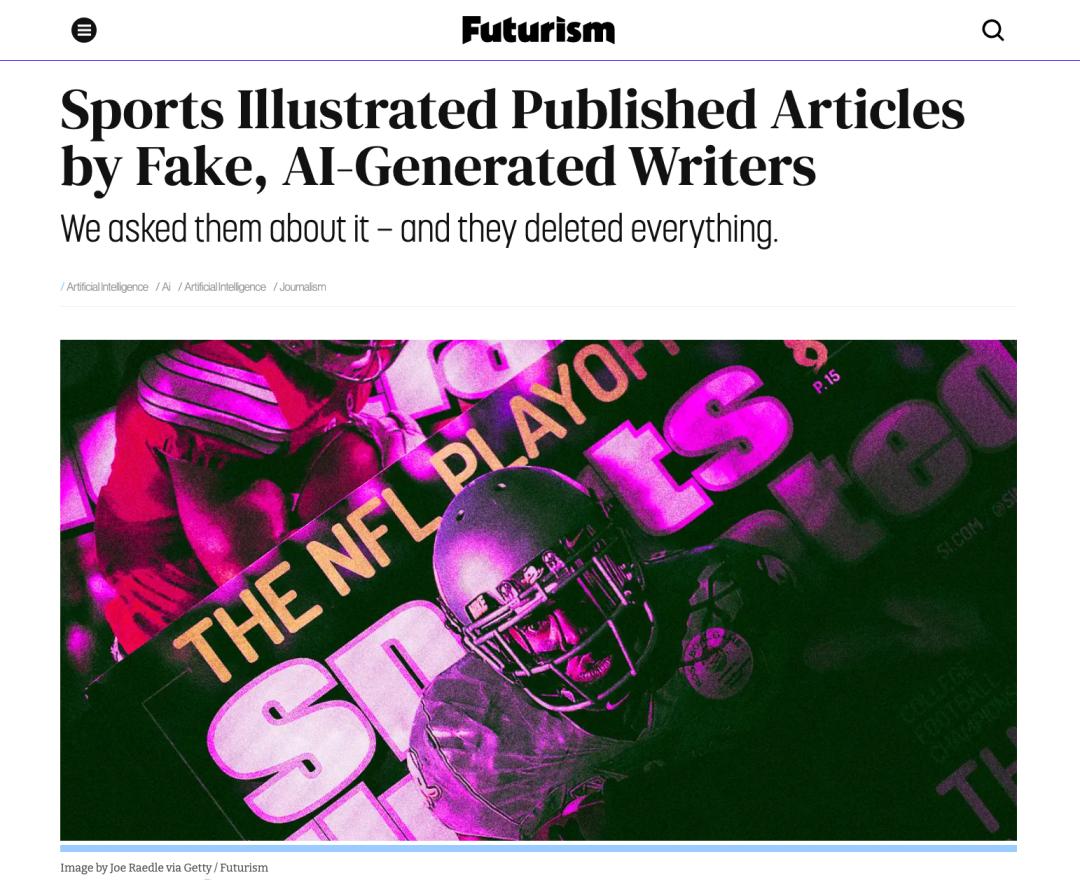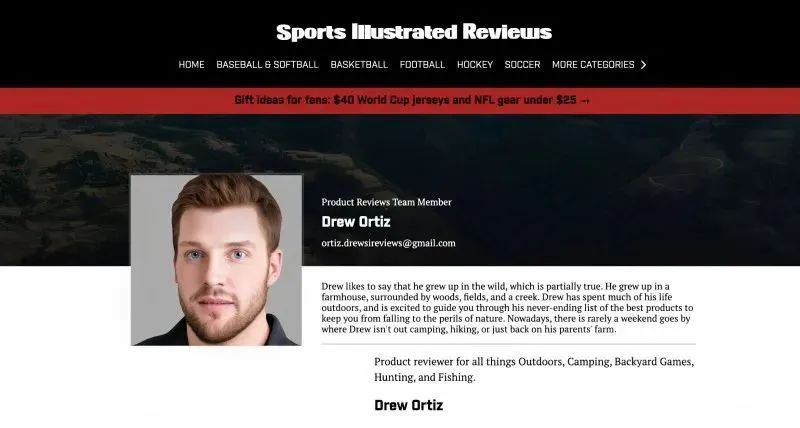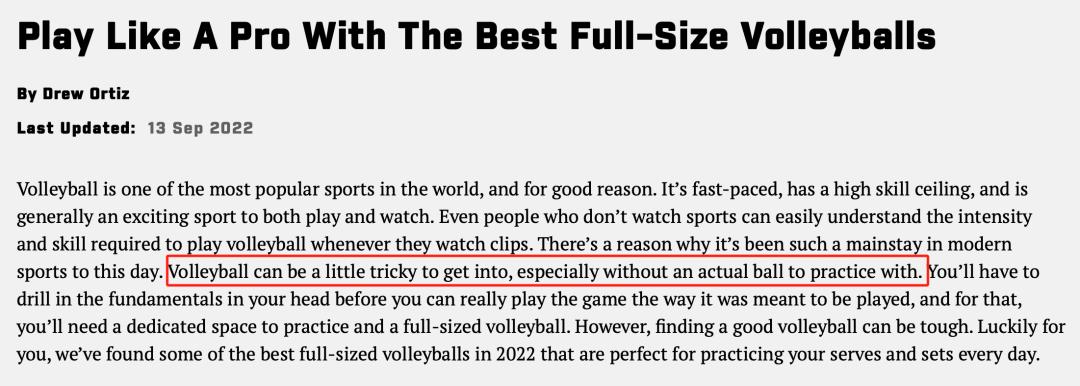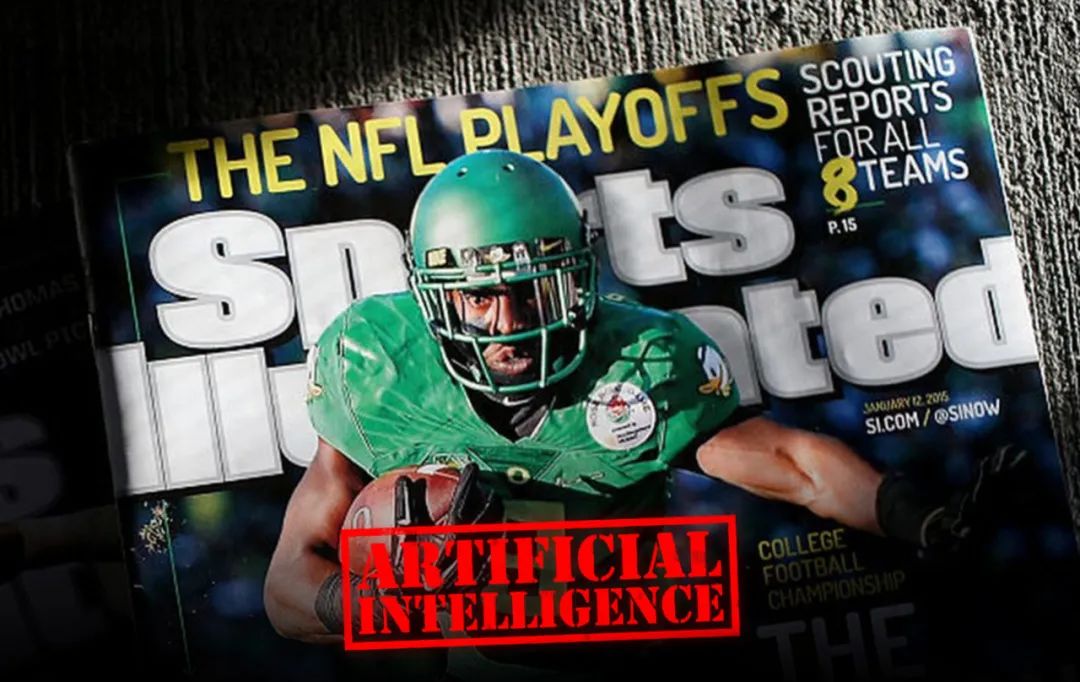World's Best Sports Magazine Accused of Using AI Tools to Generate Articles
-

Recently, the globally renowned sports magazine 'Sports Illustrated' (hereinafter referred to as 'SI') was exposed for allegedly using AI tools to generate articles and attributing them to fake AI-generated authors. This revelation has caused a massive uproar online, tarnishing the reputation of this veteran sports media outlet with accusations of 'fabrication.'

Screenshot of Futurism's report on SI
This revelation comes from the US tech media platform Futurism. Their initial report mentioned that they found Sports Illustrated's 'contracted author' Drew Ortiz on a website selling AI-generated portraits.
Notably, in Sports Illustrated's author bio, this 'Drew' had a vivid persona: 'Drew is an avid outdoor enthusiast. On weekends, he usually goes camping, hiking, or helps out on his parents' farm. He always provides the best recommendations on outdoor gear to protect people from nature's dangers.'
However, the AI portrait sales website described 'Drew' as: 'A white male with brown short hair and blue eyes.'
Cases like Drew Ortiz's are not isolated among Sports Illustrated's lineup of writers.

The introduction of Drew Ortiz on Sports Illustrated's author page

The same photo on virtual portrait websites
Compared to virtual authorship, the more serious crisis for Sports Illustrated is the allegations of content fabrication.
According to Futurism, much of the content on Sports Illustrated, including articles signed by Drew Ortiz, appears somewhat mechanical and heavily generated, such as the following paragraph:

「The process of learning volleyball can be quite complex, especially when you don't have an actual ball to practice with.」
This kind of unconvincing rhetoric is familiar to many who have used AI tools. While the grammar may seem correct, it often lacks human logic. An anonymous insider from Sports Illustrated confirmed this to Futurism: 'Many articles are entirely AI-generated, and no amount of denial can change that.'
The day after Futurism published its article, The Arena Group, which owns Sports Illustrated, issued an official response. They denied using AI for content creation within the company, stating that only author names and bios were AI-generated. The controversial articles were provided by a third-party company, AdVon Commerce. The magazine has since severed ties with the company and removed all articles published by Drew Ortiz and several other virtual authors.
However, judging by the overwhelming negative comments and controversies, people are not buying Sports Illustrated's response. Richard Reilly, a legendary journalist who worked at Sports Illustrated for 23 years, also published a column in The Washington Post, stating that he was 'confused and disappointed by Sports Illustrated's approach.'
Since the emergence of various powerful AI tools, industries have been trying to integrate artificial intelligence into their operations, with many companies and brands even considering their use of AI as a manifestation of core competitiveness. But when it comes to media, why does it not work?
Tom Rosenstiel, a professor of journalism ethics at the University of Maryland, commented on PBS: 'There is nothing wrong with media companies trying to use AI, but the mistake lies in hiding this fact from the public. After all, secrecy is also a form of lying.'
Objective reporting and disseminating factual news are crucial social responsibilities for major media outlets. Today's AI has advanced to the point where it can quickly learn and synthesize existing information, significantly improving work efficiency. However, when misused, AI's predictive and imaginative capabilities—extended from its learning abilities—can vividly describe events that never occurred, providing fertile ground for the spread and generation of fake news.

At the recently concluded DealBook Summit, Elon Musk, one of OpenAI's founders, once again highlighted the potential dangers of AI and emphasized the need for stricter regulatory oversight in AI development. As AI has become the most prominent keyword in current technological advancements, industries and companies are eager to stay ahead, seeking ways to harness this technology for their benefit.
From the controversy surrounding Sports Illustrated, it is evident that there are already some unreasonable and significant issues in the current use of artificial intelligence that need to be addressed. This requires the industry to uphold its professional and ethical standards while embracing advanced technology, and to have the courage to continuously examine and challenge the potential risks behind these new technologies, so that they can bring greater energy and growth to the industry and human civilization in the future.
